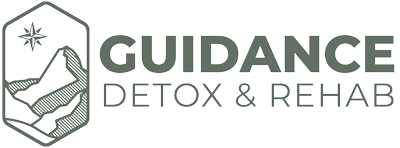A structured daily routine is a cornerstone of residential rehab programs. Far from being just a matter of discipline, the daily schedule is intentionally designed as a therapeutic framework that supports every aspect of recovery.
In this article, we’ll walk you through a typical day in residential treatment and explain how each activity contributes to the healing process—physically, emotionally, and psychologically.

The Importance of Structure in Rehab
Having a tightly scheduled day in residential rehab significantly improves treatment retention and lowers relapse rates. Structured routines provide a sense of stability and predictability, especially crucial for individuals whose lives may have been marked by chaos during active addiction.
By replacing unhealthy habits with consistent, recovery-focused activities, residential programs create a supportive framework where lasting change can take root. Your journey to recovery deserves the highest level of care and comfort. Our comprehensive inpatient treatment program in UT provides 24/7 expert support, personalized treatment plans, and a compassionate community dedicated to your success. This nurturing, structured environment ensures that each day your routine supports your physical, emotional, and spiritual healing—setting the foundation for lifelong sobriety.
Morning Routine and Wake-Up Activities
Most residential rehab programs start the day early, with wake-up times around 7:00 a.m. to help restore healthy circadian rhythms and promote better sleep hygiene. The morning typically begins with activities such as mindfulness meditation, yoga, or light stretching. These practices have been shown to reduce cravings and stress while improving emotional regulation.
Afterward, residents eat a nutritious breakfast in a communal setting, which fosters a sense of connection and routine. This is often followed by group therapy sessions that promote accountability and peer support. Mindfulness-based interventions in the morning improve self-regulation and reduce substance cravings, setting a productive tone for the rest of the day.
Breakfast and Medication Management
In many programs, breakfast is also the time when supervised medication is administered. Clinical staff ensure that prescribed medications are taken correctly, which reduces the risk of misuse and supports medical stabilization—especially important for clients with co-occurring mental health or physical health conditions.
Nutritious meals play a crucial role in physical and cognitive healing, with balanced diets supporting mood regulation, energy levels, and brain recovery during treatment.
Individual Therapy Sessions
One-on-one therapy sessions are a cornerstone of residential care and typically occur several times per week. These sessions utilize evidence-based treatments such as Cognitive Behavioral Therapy (CBT) and Dialectical Behavior Therapy (DBT), which are proven to reduce substance use and help individuals develop healthier thought patterns and coping strategies.
At Guidance Detox & Rehab in Utah, we integrate individualized therapy for addiction as a core component of our inpatient program. Our licensed clinicians work closely with each client to tailor treatment plans that address their unique history, challenges, and goals. Personalized therapy also allows for confidential exploration of past trauma, emotional triggers, and co-occurring disorders—areas that often require focused attention for sustained recovery.
Group Therapy and Support Meetings
Group therapy is another daily or near-daily feature of residential rehab programs. These sessions encourage peer connection, foster accountability, and provide a platform for shared experiences. Many programs also include 12-step-based support meetings as part of the weekly schedule.
Participation in 12-step groups has been linked to higher treatment completion rates and greater long-term abstinence. Group settings also help individuals build interpersonal skills and resilience against common relapse triggers.
Educational Workshops and Life Skills Training
Residential rehab includes educational sessions designed to teach essential life skills and promote independence post-treatment. These workshops often cover topics such as stress management, effective communication, relapse prevention strategies, job readiness, and budgeting.
Psychoeducational groups also offer valuable information on the science of addiction, brain chemistry, and emotional regulation. These classes help residents better understand their behaviors and develop actionable strategies for maintaining sobriety after leaving treatment.

Physical Exercise and Wellness Activities
Daily movement is an integral part of most residential programs, with scheduled time for physical activity such as yoga, gym sessions, or group walks. Exercise has been shown to decrease symptoms of anxiety and depression, enhance mood, and support overall recovery from substance use disorders.
Participating in physical wellness activities also builds community within the treatment setting, promoting social bonds and mutual encouragement.
Evening Programs and Reflection Time
Evening hours in residential rehab often feature short group sessions or structured activities that reinforce lessons from earlier in the day. These are followed by sober recreational options such as movie nights, board games, or creative hobbies, which offer enjoyable and substance-free alternatives to past behaviors.
Reflection activities—like journaling, prayer, or evening meditation—are encouraged as part of winding down, helping residents process their progress and emotions. Research indicates that reflection time enhances emotional regulation and treatment engagement.
Bedtime Protocols and Quiet Hours
Residential rehabs typically enforce a consistent bedtime, usually around 10:00 p.m., to encourage regular sleep patterns and support physical healing. Quiet hours ensure a restful environment that minimizes distractions and promotes quality sleep.
Adequate rest is directly tied to better cognitive function, improved mood, and a reduced risk of relapse—making sleep hygiene an important, yet often underestimated, component of recovery.
Final Thoughts from Guidance Detox & Rehab
For many individuals recovering from addiction, the absence of structure has fueled cycles of chaos, relapse, and emotional instability. Without a reliable daily routine, it becomes difficult to rebuild healthy habits, manage triggers, or develop the confidence needed to maintain long-term sobriety. That’s why a well-organized daily schedule provides more than just routine—it restores a sense of order, reinforces positive behavior, and creates a foundation for healing.
At Guidance Detox & Rehab, our inpatient program in Utah is built on this proven model of structured recovery. We offer 24/7 professional support, evidence-based therapies, and personalized care plans tailored to your unique needs. In our serene mountain setting, clients experience the perfect balance of comfort, clinical excellence, and compassionate community—everything needed to support deep healing and lasting change.
